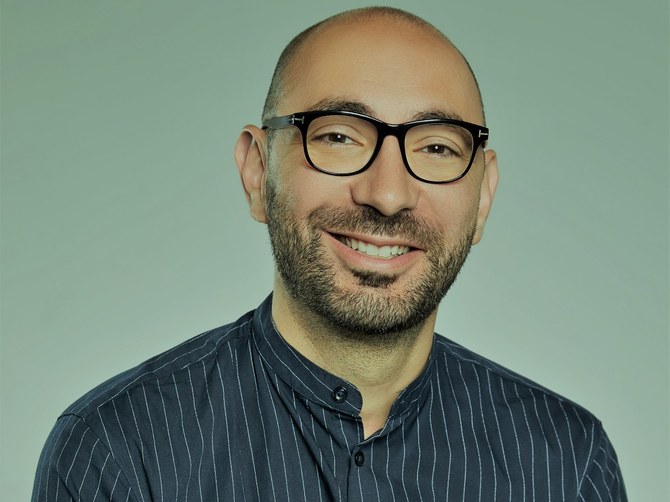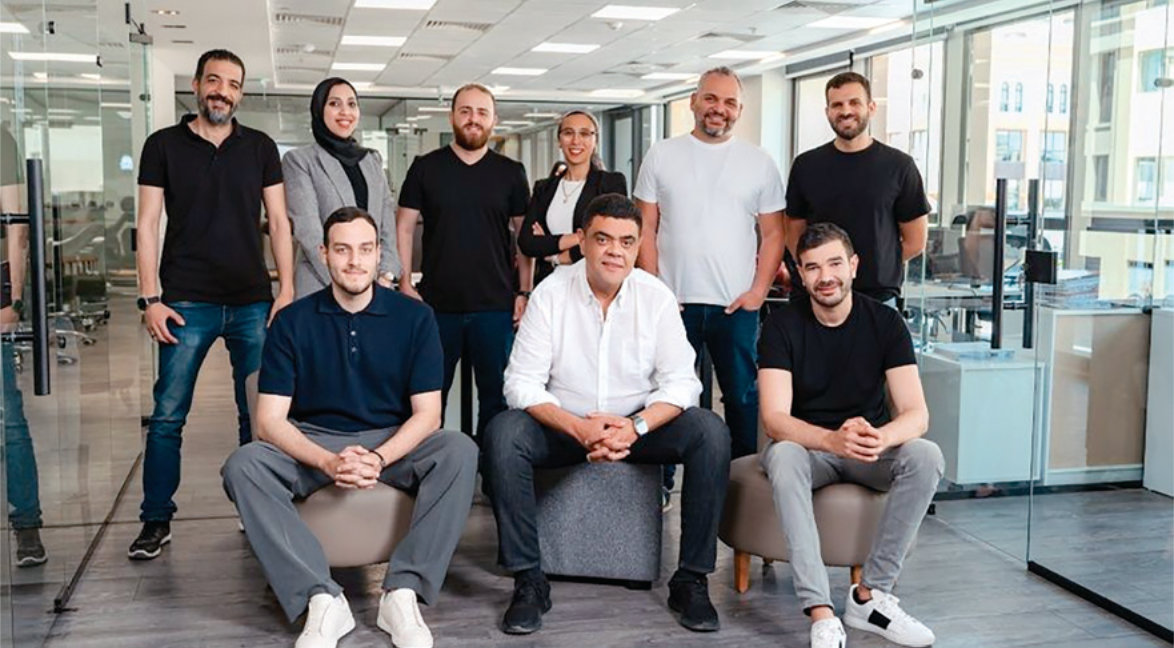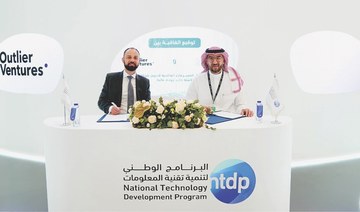CAIRO: Saudi Arabia is fast becoming an attractive destination for regional fintech heavyweights thanks to the Kingdom’s carefully regulated operations to ensure ease of doing business in an environment conducive to investments.
Tabby, a leading buy now, pay later platform based in the UAE, is one of the key fintech players to have obtained a permit from the Saudi Central Bank, also known as SAMA, to expand its operations to the Kingdom.
In an interview with Arab News, Tabby CEO Hossam Arab described it as a crucial step that would help solidify the company’s presence in the Kingdom and help boost its growth.
“Millions of people in Saudi Arabia rely on Tabby today, so it’s an incredibly important step to crystalize our foundations in the Kingdom and continue building toward financial freedom for our community,” Arab said.
Tabby has outlined ambitious strategies to reinforce its standing in the Saudi market.
“Having obtained the permit, we are even more excited about the opportunities it presents and our potential for further growth in the Saudi market as we work closely with the regulator in order to further enhance and diversify our offering by introducing new features and flexible payment options that cater to the evolving needs of our customers,” the official told Arab News.

Noting the unique opportunities available in the Saudi market, he said that Tabby can play a critical role in advancing the concept of financial inclusion in the country.
“By providing credit to individuals who might otherwise not qualify for traditional credit cards, Tabby can empower a broader segment of the population to participate in the digital economy,” Arab explained.
Tabby’s strategies perfectly align with the Kingdom’s aspirations to drive financial inclusion and literacy as a cornerstone of the country’s economic growth.
Arab also lauded the Saudi government’s measures to help boost the fintech sector. The CEO said the encouraging regulatory landscape will help instill confidence in Tabby to introduce innovative services in the Kingdom.
“The Saudi government has been taking initiatives to support the growth of the fintech sector, including the BNPL industry. With a supportive regulatory environment, Tabby can operate with confidence and explore innovative ways to expand its services,” he said.
With Tabby’s permit, the Kingdom now has five authorized companies offering BNPL solutions, boosting its plans to become a regional fintech hub.
FASTFACTS
$660 million Currently operational in Saudi Arabia, the UAE, and Kuwait, Tabby holds a valuation of $660 million following its latest funding round from investors including Sequoia Capital India, STV, PayPal Ventures, Mubadala Investment Capital, Arbor Ventures, and Endeavor Catalyst.
15K The company has over 15,000 worldwide brands and small enterprises, encompassing H&M, Adidas, IKEA, SHEIN, noon, and Bloomingdale’s, that utilize its technology to stimulate growth and build a faithful customer base by offering flexible payment options both online and in-store.
Under the Kingdom’s national fintech strategy, the number of firms in the sector is expected to increase from 82 in 2022 to 230 by 2025.
The plan also seeks to increase the fintech sector’s contribution to the gross domestic product to SR4.5 billion ($1.2 billion) and create nearly 6,000 jobs by 2025, besides increasing the share of digital transactions to 70 percent of all financial dealings.
As the Kingdom plans to strengthen its financial sector through Vision 2030, Arab sees Tabby as a key player in supporting that plan.
He emphasized that Tabby’s extensive experience in the BNPL space would greatly benefit the Kingdom’s financial industry.
“Tabby is now one of the largest BNPL providers globally, which means the challenges we face as we scale, whether regulatory or organizational, help pave the way for the next generation of fintech startups in their growth journey,” he stated.
Despite the competitive landscape, with now five companies offering BNPL solutions in the Kingdom, Arab is confident about Tabby’s distinctive market position.
The company has over 15,000 worldwide brands and small enterprises, encompassing H&M, Adidas, IKEA, SHEIN, noon, and Bloomingdale’s, that utilize its technology to stimulate growth and build a faithful customer base by offering flexible payment options both online and in-store.
Additionally, Tabby has over 4 million users on its platform and more than 280,000 Tabby Cards have been issued in the UAE alone.
Currently operational in Saudi Arabia, the UAE, and Kuwait, Tabby holds a valuation of $660 million following its latest funding round from investors including Sequoia Capital India, STV, PayPal Ventures, Mubadala Investment Capital, Arbor Ventures, and Endeavor Catalyst.

The company also expanded its operations to Egypt in 2022 but reversed its decision six months after the launch.
With Saudi Arabia being a crucial part of Tabby’s regional strategy and making up over 80 percent of its customer base, Arab underscored the importance of the license as an outcome of years of work with partners, consumers, and regulators in the market.
“Tabby is the largest BNPL provider in the Middle East, so the sellers and shoppers that use Tabby benefit from the network effects of the largest shopper base and acceptance network,” the official said.
“We take this even further with Tabby Shop, now featuring hundreds of thousands of products from our seller network, letting our shoppers discover and track the best products, brands, and deals in one place. We’re also on track to launch innovative solutions like Tabby Card and other financial and shopping services,” Arab added.
Speaking about the increasing regulatory scrutiny around the BNPL business model, Arab said Tabby is committed to upholding the highest standards of regulatory compliance in the Saudi market.
“As we have always done, we will continue to proactively collaborate with the regulators to ensure adherence to all relevant laws and guidelines. Implementing robust risk assessment models and transparent disclosure practices will be key to building trust with customers and ensuring a sustainable and responsible BNPL business model,” he stated.
The issuance of the permit also highlights SAMA’s commitment to boosting the sector through enhanced operational efficiency.
SAMA anticipates attracting a novel cohort of investors and firms to the Kingdom that can provide extra value to both the sector and the wider economy.
Moreover, the central bank is leveraging technology in financial services to underpin Saudi Arabia’s overarching objectives as it vigorously pursues the Vision 2030 economic diversification strategy.
In May 2023, Tabby upsized its debt facility to $350 million in a new financing round led by US-based Partners for Growth along with Atalaya Capital Management and CoVenture.
The additional financing will help boost Tabby’s customer and business acquisition efforts.




























